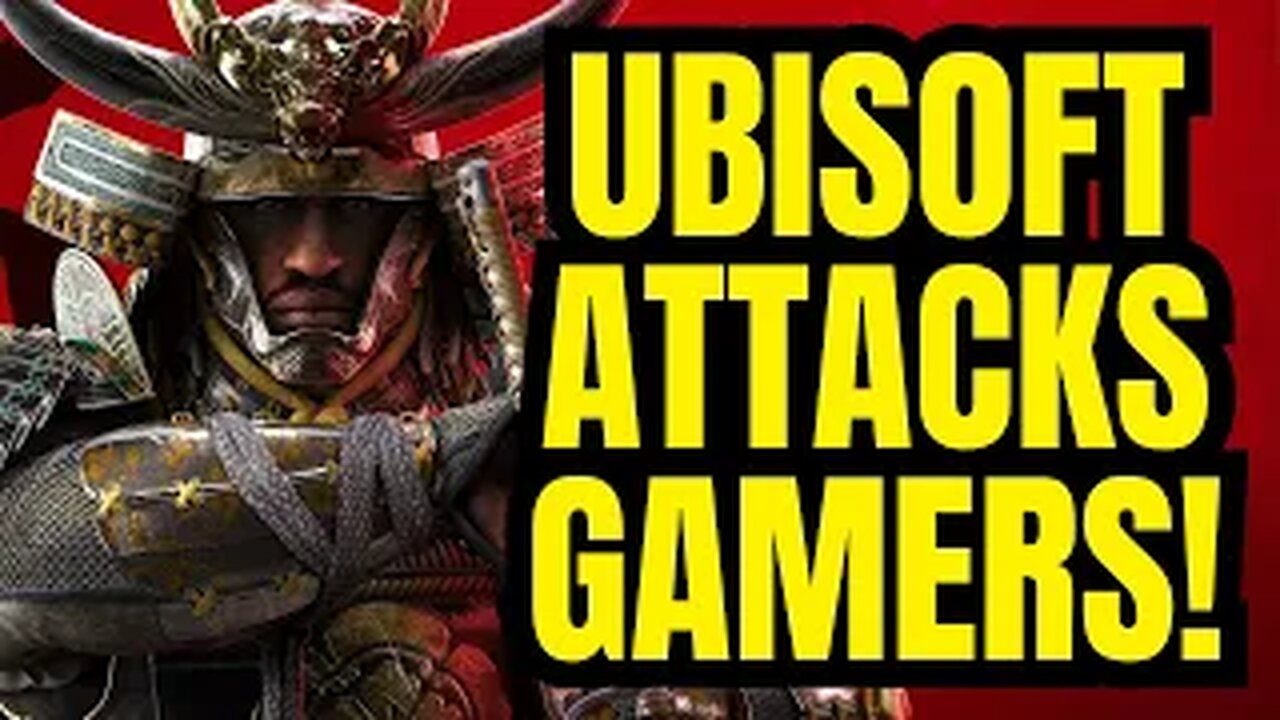Premium Only Content

Ubisoft & New York Times Attack Gamers Over Assassin's Creed Shadows!
Ubisoft has stirred up a massive storm over Assassin's Creed Shadows, leading to intense backlash from players and critics alike. In an attempt to salvage the game, Ubisoft partnered with The New York Times to address the controversy surrounding the depiction of a Black samurai in 16th-century Japan. The uproar began when Assassins Creed Shadows was accused of "going woke," sparking debates over the game's historical accuracy and creative liberties.
The controversy centers around the character of Yasuke, the Assassin's Creed Black Samurai. Critics argue that the game has inaccurately portrayed Yasuke as a full-fledged samurai, when historical evidence suggests he may have only been a bodyguard or entertainer for Oda Nobunaga. Ubisoft, in response, has doubled down on their creative direction for Assassins Creed Shadows, with art director Thierry Dansereau defending their approach and the extensive research they claim to have undertaken.
At the heart of this dispute is Ubisoft’s effort to blend the history of Japan with the gameplay experience. The Assassins Creed Shadows trailer featured Yasuke in a role many argue is exaggerated, and it didn’t take long for accusations of historical distortion to pile up. To counter the backlash, Ubisoft's Dansereau insists that the team worked closely with Japanese experts and even apologized to Japanese critics over inaccuracies presented in their promotional material.
However, much of the anger remains, particularly due to Ubisoft's creative decisions involving Japanese architecture and cultural elements. For instance, the use of Chinese-inspired designs in Assassins Creed Shadows gameplay has further fueled criticisms. While Ubisoft claims they aimed to stay respectful of Japanese culture, their Assassins Creed Shadows reaction to the controversy hasn’t been well-received by either Western or Eastern players.
The Assassins Creed Shadows controversy has even reached political circles in Japan, where a party officially requested a government response on the historical inaccuracies of the game. Meanwhile, Japanese YouTubers like Shoehi Kondo have voiced their opposition, pointing out that Assassin’s Creed Shadows disregards cultural nuances and propagates historical distortions.
Ubisoft’s partnership with Zachary Small and The New York Times to address the backlash may have only fanned the flames. Small’s article referenced historian Yu Hirayama’s claim that Yasuke was without question a samurai, though other historians, such as Yūichi Goza, dispute this, stating that Yasuke’s role may have been ceremonial rather than combative.
Ubisoft has undoubtedly found themselves in hot water with Assassins Creed Shadows, and the community remains skeptical. The release of the Assassins Creed Shadows trailer and Assassins Creed Shadows Japanese rap has yet to calm the storm, as more players express dissatisfaction with Ubisoft's handling of the game’s historical content. Will Assassins Creed Shadows redeem itself, or is it doomed to become another casualty of the “woke” backlash?
-
 8:24
8:24
8-Bit Eric (8BE)
7 days agoMarathon Looks AWFUL – Sony’s Next Concord-Style Failure?!
732 -
 9:54
9:54
GBGunsRumble
12 hours agoOsight S and Osight X Introduction
4.15K3 -
 29:17
29:17
The Why Files
15 hours agoSTRIPPED: Proving the Afterlife | The Scole Experiments
46.1K35 -
 8:00:00
8:00:00
SpartakusLIVE
14 hours agoDuos w/ Oakboi || The Ultimate WZ Taterfarm
57.3K1 -
 28:36
28:36
SB Mowing
2 days agoShe Couldn’t AFFORD to Keep It Clean Anymore, So I Stepped In
36.2K18 -
 7:54:04
7:54:04
MyronGainesX
23 hours ago $37.31 earnedOKC Bombing 30 Years Later, Vitaly And Somali Trouble, Durk Case Dissmissal, And MORE!
159K33 -
 1:26:34
1:26:34
Iggy Azalea
9 hours ago $11.10 earnedGambling on my casino cause and you know you love it
66.7K28 -
 29:25
29:25
Forrest Galante
10 hours agoPrivate Tour of Billionaire's Secret Animal Sanctuary in India
54.4K7 -
 2:37:29
2:37:29
vivafrei
22 hours agoEp. 260: SCOTUS Blocks Trump Deportation? Letitia James Criminal Referral! RFK Jr. & Autism & MORE!
156K193 -
 7:30:34
7:30:34
iCheapshot
14 hours ago $4.06 earnedSunday Funday! |Happy Easter! | Happy 420 #BlazeIt
43K4